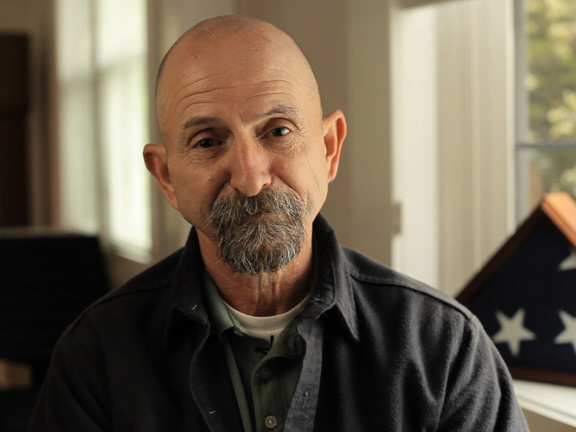Do I Have PTSD?
Do I Have PTSD?
Available en Español
The only way to know for sure if you have PTSD is to talk with a mental health provider. There are steps you can take to get started. Learn about a self-screen you can take and why getting help for PTSD is important.
Reading time: minutes
Talk With Someone You Trust
After a traumatic event, or trauma, it's normal to think, act and feel differently than usual. Most people will start to feel better after a few weeks. If your symptoms still bother you after a month, are very upsetting, and disrupt your daily life, it's time to consider getting treatment. Whether or not you have PTSD, if thoughts and feelings from the trauma are bothering you, treatment can help.
Take a first step by talking with:
- Your family doctor or primary care provider
- A mental health professional, such as a therapist or counselor
- Someone who works at your local VA facility or Vet Center, if you are a Veteran
- A close friend or family member who can support you while finding help
- A clergy member
Another option is for you to fill out a PTSD screening questionnaire (see below).
Take a Self-Screen for PTSD
A screening questionnaire is a short set of questions just to see if a person needs to be assessed further for PTSD. This is similar to getting a blood cholesterol screen to see if you might need more assessment or treatment. Unlike a blood test, a PTSD self-screen asks questions to help you understand if your thoughts, feelings and behaviors may be related to PTSD.
Below is the Primary Care PTSD Screen for DSM-5 (PC-PTSD-5).
Primary Care PTSD Screen for DSM-5
Sometimes things happen to people that are unusually or especially frightening, horrible, or traumatic. For example:
- a serious accident or fire
- a physical or sexual assault or abuse
- an earthquake or flood
- a war
- seeing someone be killed or seriously injured
- having a loved one die through homicide or suicide
Have you ever experienced this kind of event? YES / NO
If no, screen total = 0. Please stop here.
If yes, please answer the questions below:
In the past month, have you ...
- Had nightmares about the event(s) or thought about the event(s) when you did not want to? YES / NO
- Tried hard not to think about the event(s) or went out of your way to avoid situations that reminded you of the event(s)? YES / NO
- Been constantly on guard, watchful, or easily startled? YES / NO
- Felt numb or detached from people, activities, or your surroundings? YES / NO
- Felt guilty or unable to stop blaming yourself or others for the event(s) or any problems the event(s) may have caused? YES / NO
If you answer "yes" to 3 or more questions you may have PTSD. You can share this screen with your doctor who can do a full assessment for PTSD or refer you to someone who can. It can be scary to consider that you might have PTSD. But knowing why you're feeling this way can help you make sense of your symptoms.
Scoring 3 or more on the PTSD self-screen (PC-PTSD-5) does not always mean you have PTSD. Some of the symptoms of PTSD overlap with other mental health problems. For example, trouble concentrating or feeling less interested in things you used to enjoy can be signs of both depression and PTSD. And different problems have different treatments.
Your mental health care provider can determine whether you need treatment for PTSD or another type of treatment. Learn how to Find a Provider for PTSD assessment and treatment.
Resources
If you are interested in learning more about self-screening or if you are waiting for your PTSD provider appointment to follow up on self-screen results, you can:
- Learn more about PTSD self-screens and steps you can take to get the help you deserve. You can fill out an interactive PC-PTSD-5 in our PTSD Screening Day section, any time.
- Learn more about PTSD and effective treatments in our Understanding PTSD and PTSD Treatment booklet (PDF).
- Watch videos of Veterans talk about their PTSD symptoms and how treatment helped them turn their lives around at AboutFace.
You May Also Be Interested In



























